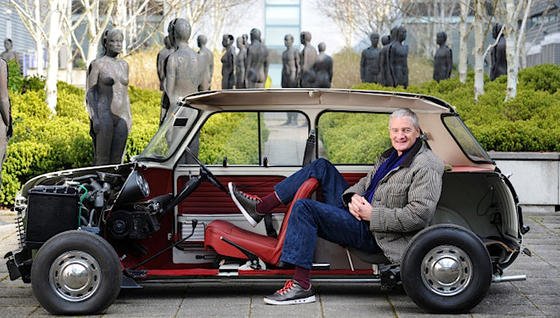
Introduction
James Dyson is a name synonymous with innovation and entrepreneurship. As the founder of Dyson Ltd., he has revolutionised household appliances, particularly through the invention of the bagless vacuum cleaner and hand dryers. Dyson’s work has had a significant impact not only on the appliance sector but also on engineering and design, making his contributions highly relevant in today’s fast-evolving technological landscape.
Early Life and Education
Born in 1947 in Norfolk, England, Dyson was initially interested in art, but his passion quickly shifted towards engineering. He studied at the Royal College of Art in London, where he began exploring design and technology. After completing his degree, he worked for various design companies, where he honed his skills and developed a knack for problem-solving.
Notable Innovations
Dyson’s breakthrough came in 1983 when he invented the Dual Cyclone bagless vacuum cleaner, which used centrifugal force to separate dust and dirt without losing suction. This invention not only challenged the norms of vacuum cleaner design but also led to a patent war with major competitors. Despite initial setbacks and a slow start, his idea eventually gained traction, and Dyson Ltd. was founded in 1991.
Over the years, Dyson has expanded into various product lines, including bladeless fans, hairdryers, and air purifiers, each embodying innovative technology and modern design. The Dyson Airblade hand dryer revolutionised hygiene in public restrooms, using high-velocity air to dry hands in just seconds.
Recent Developments
In recent news, Dyson has announced plans to invest £2.75 billion in research and development over the next five years. This investment aims to expand its portfolio and reinforce its commitment to sustainability and environmental responsibility. This move arrives as consumer demand shifts towards energy-efficient appliances and eco-friendly technologies.
The company has also been making strides in robotics and artificial intelligence, hinting at potential future products that could change household dynamics even further.
Conclusion
James Dyson’s legacy is one of innovation, perseverance, and a relentless pursuit of excellence. With continuous investments in research and development, Dyson Ltd. is poised to remain at the forefront of technological advancement. For consumers, the significance of Dyson’s work lies not only in the products they use daily but also in the inspiration to innovate and challenge the status quo in any field. As we look to the future, Dyson’s commitment to impactful engineering and sustainability indicates a trajectory that will likely shape household technology for years to come.
You may also like

The Role of Metro Systems in Modern Cities

Costa Coffee’s Commitment to Sustainability in 2023
